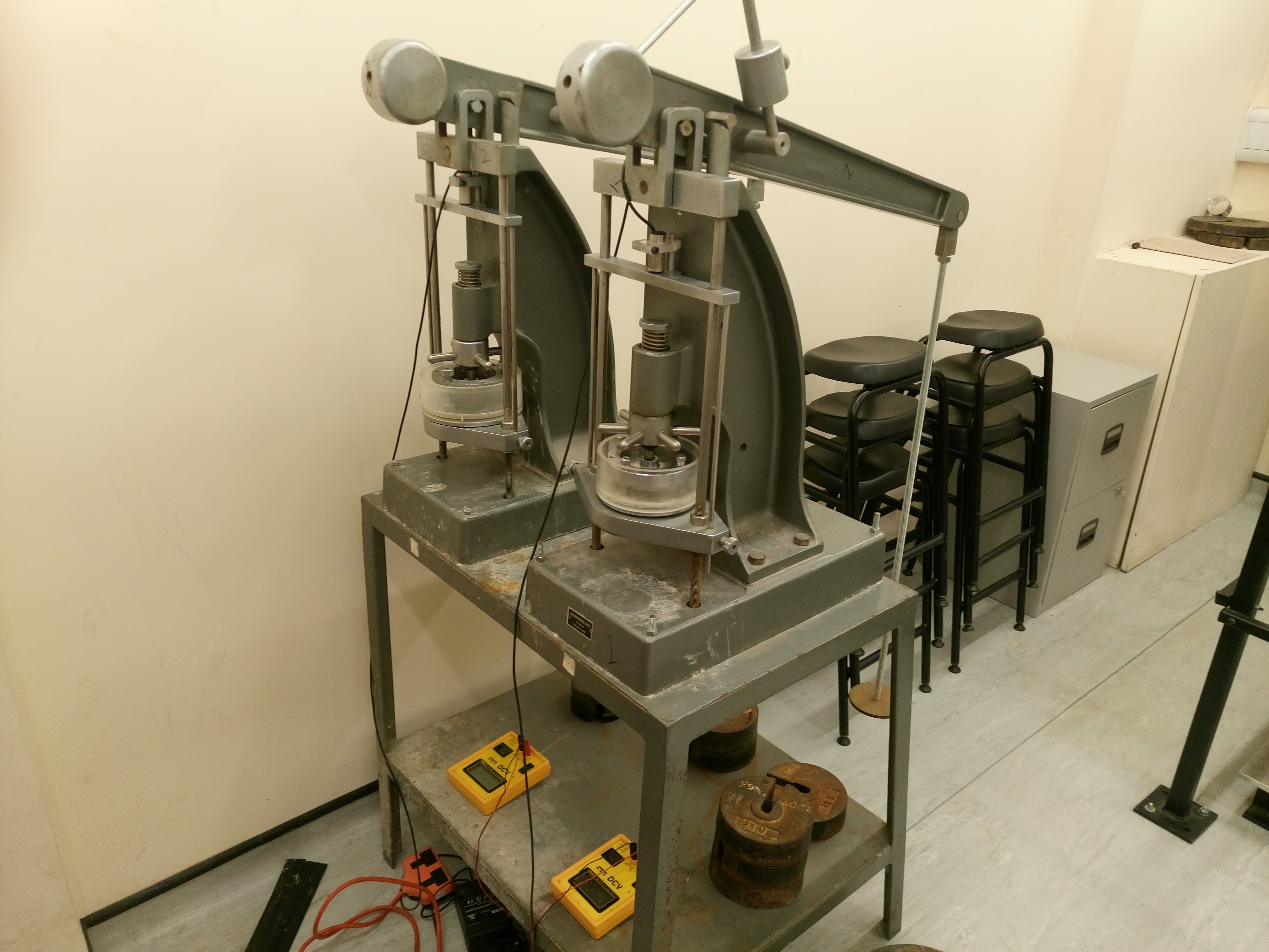#soil_consolidation

Soil consolidation
Process by which soils decrease in volume
Soil consolidation refers to the mechanical process by which soil changes volume gradually in response to a change in pressure. This happens because soil is a three-phase material, comprising soil grains and pore fluid, usually groundwater. When soil saturated with water is subjected to an increase in pressure, the high volumetric stiffness of water compared to the soil matrix means that the water initially absorbs all the change in pressure without changing volume, creating excess pore water pressure. As water diffuses away from regions of high pressure due to seepage, the soil matrix gradually takes up the pressure change and shrinks in volume. The theoretical framework of consolidation is therefore closely related to the concept of effective stress, and hydraulic conductivity. The early theoretical modern models were proposed one century ago, according to two different approaches, by Karl Terzaghi and Paul Fillunger. The Terzaghi’s model is currently the most utilized in engineering practice and is based on the diffusion equation.
Fri 28th
Provided by Wikipedia
This keyword could refer to multiple things. Here are some suggestions: